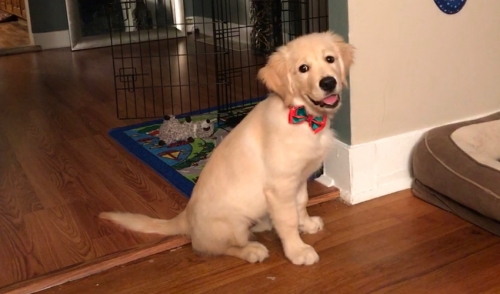{article.name}
Help My Pet Has Bad Breath

- Share this:
- Share on Facebook
- Pin on Pinterest
- Tweet on Twitter
Every pet owner knows their animals – dogs, cats, birds, reptiles, or small animals like ferrets, rabbits and hamsters – have distinctive odors, and breath is part of that body aroma. When a pet's breath grows increasingly bad or changes dramatically, however, it can indicate serious trouble and it is important to take appropriate steps to give your pet a fresh, healthy mouth.
How Bad Is Bad?
Even with regular brushing and good, pet-friendly oral care, a pet's breath will never be minty fresh like a human's may be. Over time, you will learn to recognize your pet's normal breath odor, and can recognize when that odor changes or has worsened.
Very bad breath, also called halitosis, may be particularly pungent, or could have a distinctively different smell such as a fruity or sugary odor, smelling like rot or feces, or be rancid or just exceptionally strong. Any severe changes in breath odor that can't be immediately explained – for example, a pet's breath will naturally be stronger right after a meal – and that don't return to normal within a day or two should be cause for concern. When the onset of bad breath is paired with other symptoms, such as vomiting or diarrhea, excessive urination, appetite changes, excessive drinking or pawing at the face, a veterinarian should be consulted immediately.
Causes of Bad Breath in Pets
Bad breath is a very common in many pets, and there are many potential causes behind a foul smell. While the severity of the bad breath will vary depending on the pet, the cause of the odor could be…
- Dental problems such as plaque or tarter buildup as well as gingivitis
- Old food stuck in the pet's teeth, under the tongue or wedged under the lips
- Diabetes
- Kidney or liver disease
- Infections or sores in the mouth, including on the lips, gums or tongue
- Sinus infections
- Tonsillitis or other infections of the throat
- Cancer or mouth or throat tumors
- Eating smelly items such as trash, rotten food, dead animals or feces
Because it can be difficult to determine the exact cause of your pet's bad breath, unless you happen to see them eating something foul, it is essential to consult a veterinarian for an accurate diagnosis.
Keeping Your Pet's Breath Fresh
There are many ways to help your pet have fresh breath. If they haven't developed a problem, these tactics can keep their mouth fresh and clean, or if your veterinarian has treated the underlying cause, you can use these methods to help prevent a recurrence and keep your pet's breath more pleasant.
- Include dental checkups and professional cleanings as part of your pet's regular veterinary care. The frequency of the cleanings will vary, but should be done at least annually.
- Feed your pet only high quality food without fillers that will be more difficult to digest and could cause digestive trouble and influence bad breath.
- Offer your pet plenty of sturdy chew toys or specially designed dental cleaning chews and treats that will help scrub their teeth.
- Brush your pet's teeth regularly, ideally once a day. Use a pet-friendly toothpaste and be gentle to get your pet accustomed to brushing so it isn't stressful.
- Keep bad substances out of reach of your pet. Trash should be securely covered, feces cleaned up right away and other items kept away so your pet won't eat them.
- Check your pet's mouth regularly for signs of sores, infections or stuck particles of food so any problems can be addressed before they become severe.
Bad breath is one of the most common problems in pets, and one of the easiest to overlook. By being aware of your pet's oral hygiene as part of overall good care, you can be sure to prevent not only bad breath, but also the more serious underlying problems that can cause it.

Comments